Life at the tunnel face
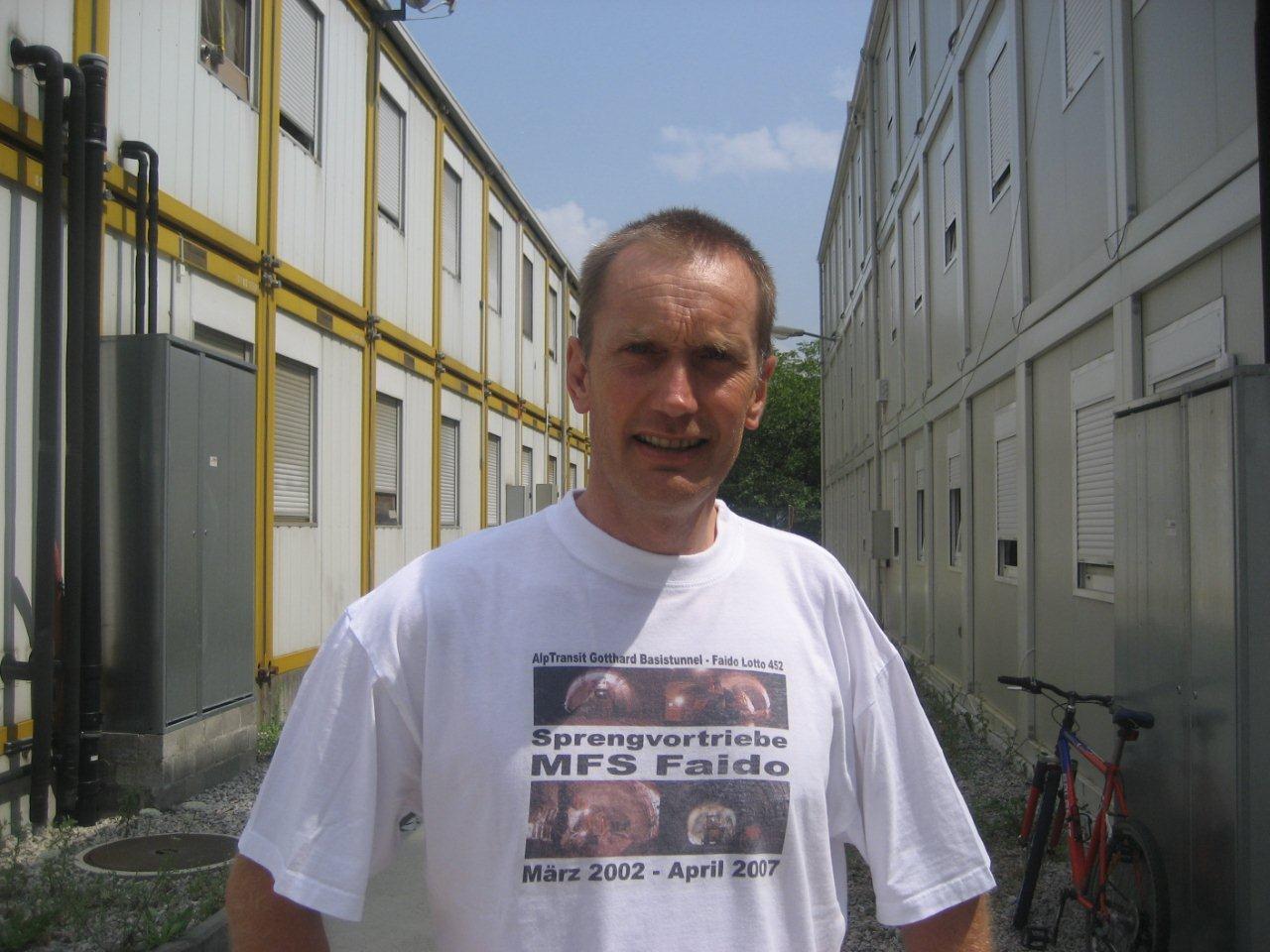
Hundreds of miners have been excavating the new Gotthard Base Tunnel, which is due to see its final breakthrough on October 15.
Austrian father-of-three Gerhard Fürpass, aged 45, is one of them and he tells swissinfo.ch about the highs and lows of working on the massive underground project.
“I have been a tunnel miner for 25 years. Since 2002 I have been working on the AlpTransit construction site at the Gotthard Base Tunnel, first in Bodio and then two years in Faido, an employee of the Alpine building company. I’m the foreman on the tunnel boring machine (TBM) in the west tube.
That means that we –my colleagues and I – carry out all of the safety work after the tunnel has been bored through. There are four to five of us, just five metres away from the drilling head.
We’re the first ones to see the freshly-drilled tunnel. If the rock is firm, we only have to secure it a bit, with nets and supports. If it’s less steady, we have to install grills and pointed arches.
No ordinary job
It’s certainly no ordinary job and in a way, it’s also dangerous. But if you’ve been a miner as long as me, you have lots of experience and can rely on your colleagues. There is a danger of water coming in and rockfall. Luckily nothing has ever happened to me and I hope it stays this way.
I work shifts if the TBM is running. We arrive at 10pm on the first day, start at 11pm and then work until 8am. I’m out by 9am and in my room. Then I sleep. That’s how it is for five days in a row.
I have a pre-fab room, which is small, but it’s enough for me and it even has air-conditioning.
There is a change on the sixth day, when the shift runs from 4pm to 11pm. After that there are four shifts of 1.30pm to 11pm. On the tenth day, we leave the tunnel at 11pm. Many colleagues drive home through the night, but some sleep and go the next day. We have five days at home.
Family life
This type of rhythm takes some getting used to, but it’s normal for me and my family. I have three children and four grandchildren. My youngest daughter has always said it was more important to have a Dad who was really there for five days and who devoted time to his family, than a Dad who was there every evening but did not look after his family. My wife got to know me like this and she has never had a problem with it.
I actually did an apprenticeship as a plumber but when I lost my job, my father, also a tunnel builder, took me with him. A construction site was never my dream.
But I like my job. I can’t imagine simply having an office job or working in a factory. Being a miner is not just a job, it’s perhaps more, even if the word vocation goes a bit too far. The money plays an important role. If I earned the same at home I’d hardly ever be there, it’s the same, too, for my colleagues. We earn a good salary but it has its price.
I’ve been here for eight years, which is unusual – I’ve never been this long on a single construction site. Nobody thought it would take this long, but this tunnel is a huge project and there have been a few problems. But I have never doubted that it would be possible. You always get there in the end in tunnel construction. Sometimes you only move a few centimetres forward, but you always go forwards.
In summer it can get really hot in the tunnel, if there are perhaps logistics problems with the water [cooling system]. As long as the temperature stays around 26-28 degrees Celsius, it’s ok, but when it’s 34 degrees – then, wow, you can’t imagine what it’s like.
A certain pride
There is a certain pride about being part of building the world’s longest tunnel. You don’t really think about it during your daily work.
If accidents happen we do talk about them of course. It does really affect you and it always makes you reflect: why are we doing this? Colleagues are replaced. Somehow you are just a number.
I always try to go to work in a positive mood. And there’s our free time of course. I really like going out on my bike as it’s the best way for me to switch off. The fresh air does me some good as we have enough bad air in the tunnel.
What is going to happen after the work is finished? I don’t know if my company will get more work. I’d like to stay in Switzerland, the social security is much better than in the rest of Europe. Perhaps there’ll be a second Gotthard road tunnel. We’re all in favour of it. We could build it in eight years.
We often speak about the effort needed to make the Gotthard Base Tunnel. One day the train will travel through it in 15 minutes. And nobody will be able to imagine just how much work was behind it all – quite apart from the costs.”
Length: 57km, world record; total underground structure length: 151.84km
Planned breakthrough between Faido and Sedrun: October 15, 2010.
Volume of excavated material: 24 million tonnes, 5 times the volume of the Great Pyramid of Giza in Egypt
Planned opening date of tunnel: December 2017
Top speed of trains: 250km/h (passenger trains), 160km/h (freight trains)
Contractor: AlpTransit Gotthard (founded May 1998), 100% subsidiary of Swiss Federal Railways, with base in Lucerne.
Number of AlpTransit employees: 140; number working on construction sites c.2,200 (Gotthard and Ceneri Base Tunnels)
The Gotthard Base Tunnel and Ceneri Base Tunnel (ready 2019) create an ultramodern flat rail link whose highest point is at 550 metres above sea level. This is much lower than the highest point of the existing route through the mountains at 1,150 metres.
The route through Switzerland becomes flatter and 40km shorter, so faster for passengers. Freight trains travelling on the flat route can be longer and pull up to twice today‘s weight – 4,000 tonnes instead of 2,000 tonnes. They will be up to twice as fast.
These 2 tunnels, plus the Lötschberg base tunnel (opened 2007), are the key elements of the NRLA (New Rail Link through the Alps).
The NRLA is one of the world’s largest construction projects and includes the extension of two North-South railway lines through Switzerland. The total cost is expected to be around SFr18-20 billion ($18.3-$20-3 billion), of which SFr9.74 billion for the Gotthard.
(Adapted from German by Isobel Leybold-Johnson)

In compliance with the JTI standards
More: SWI swissinfo.ch certified by the Journalism Trust Initiative
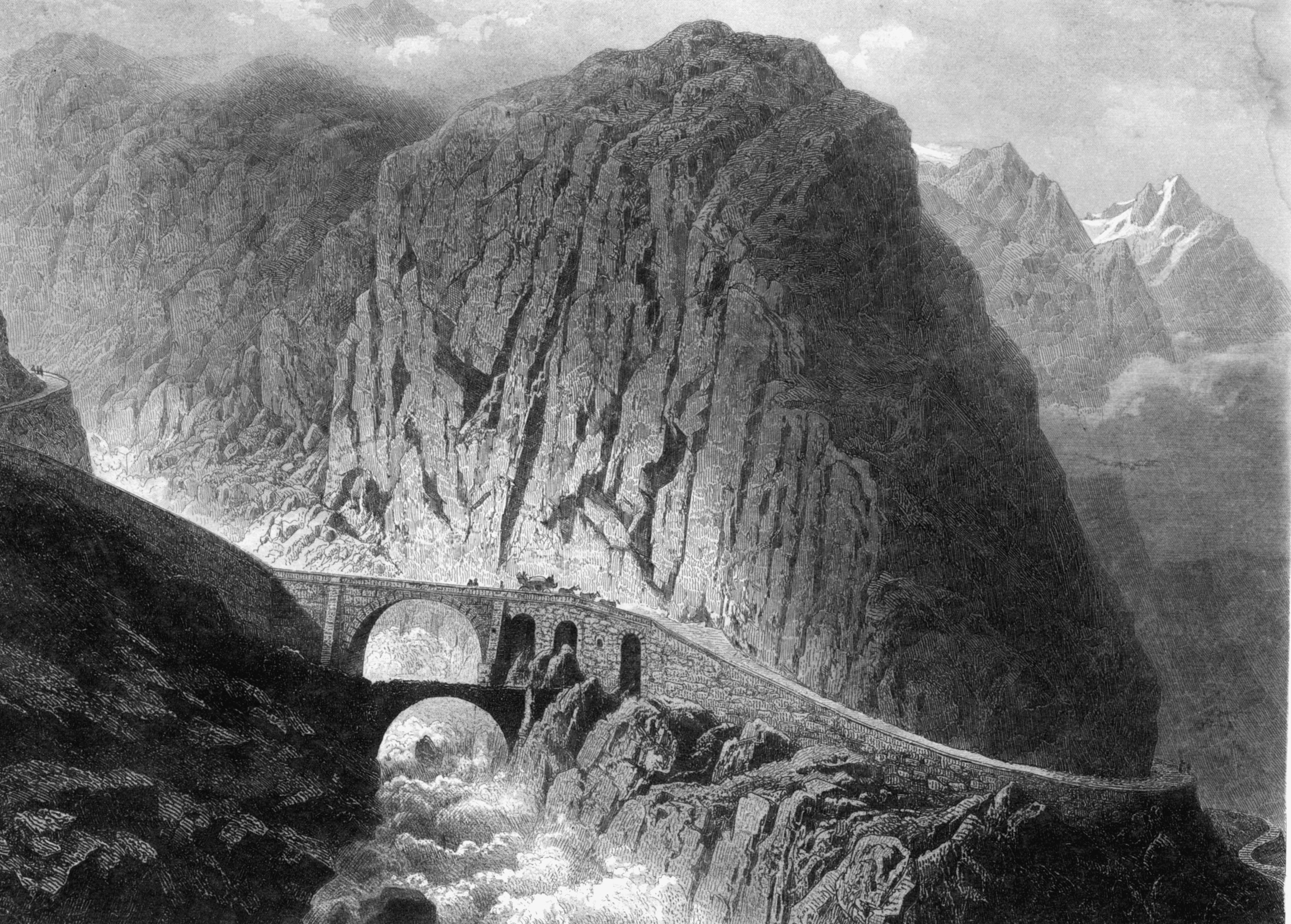
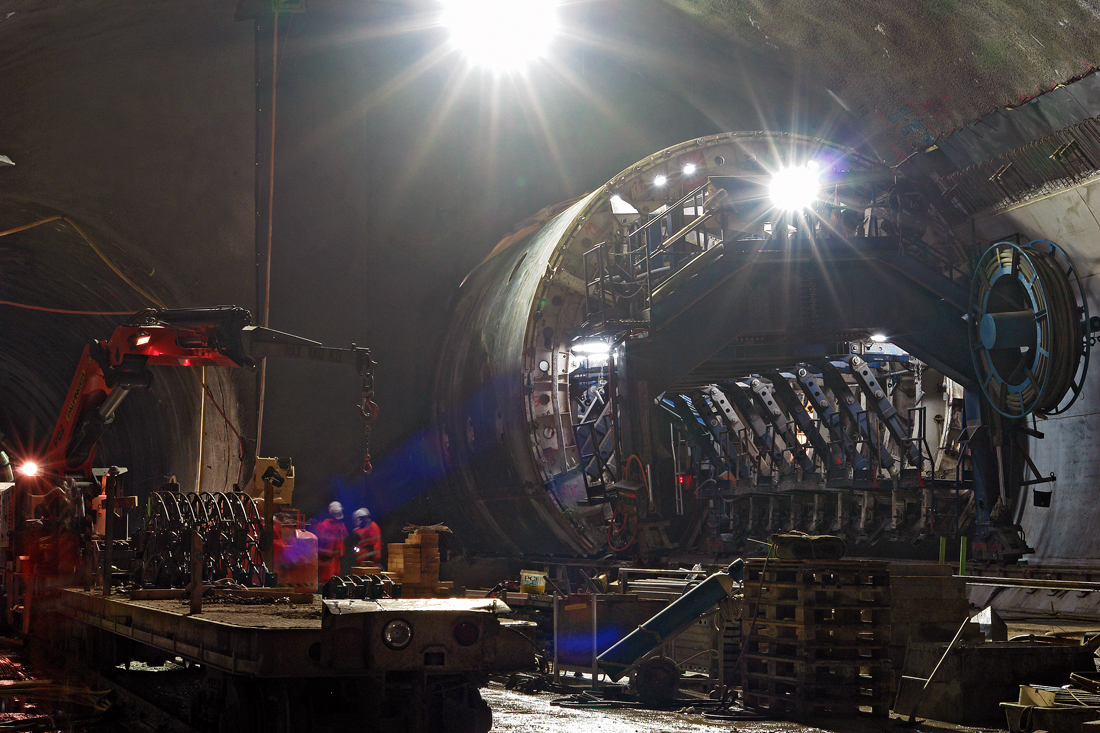
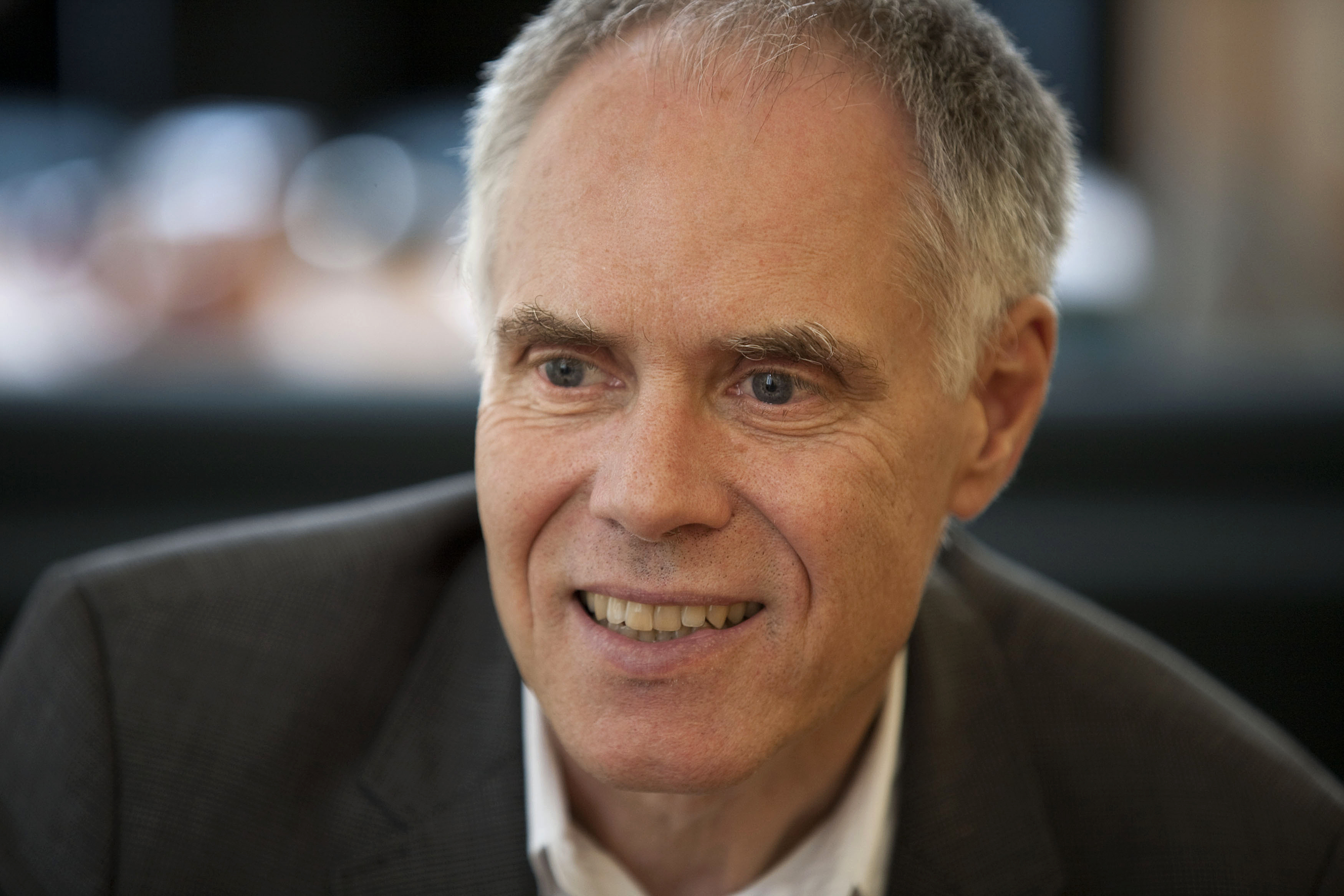
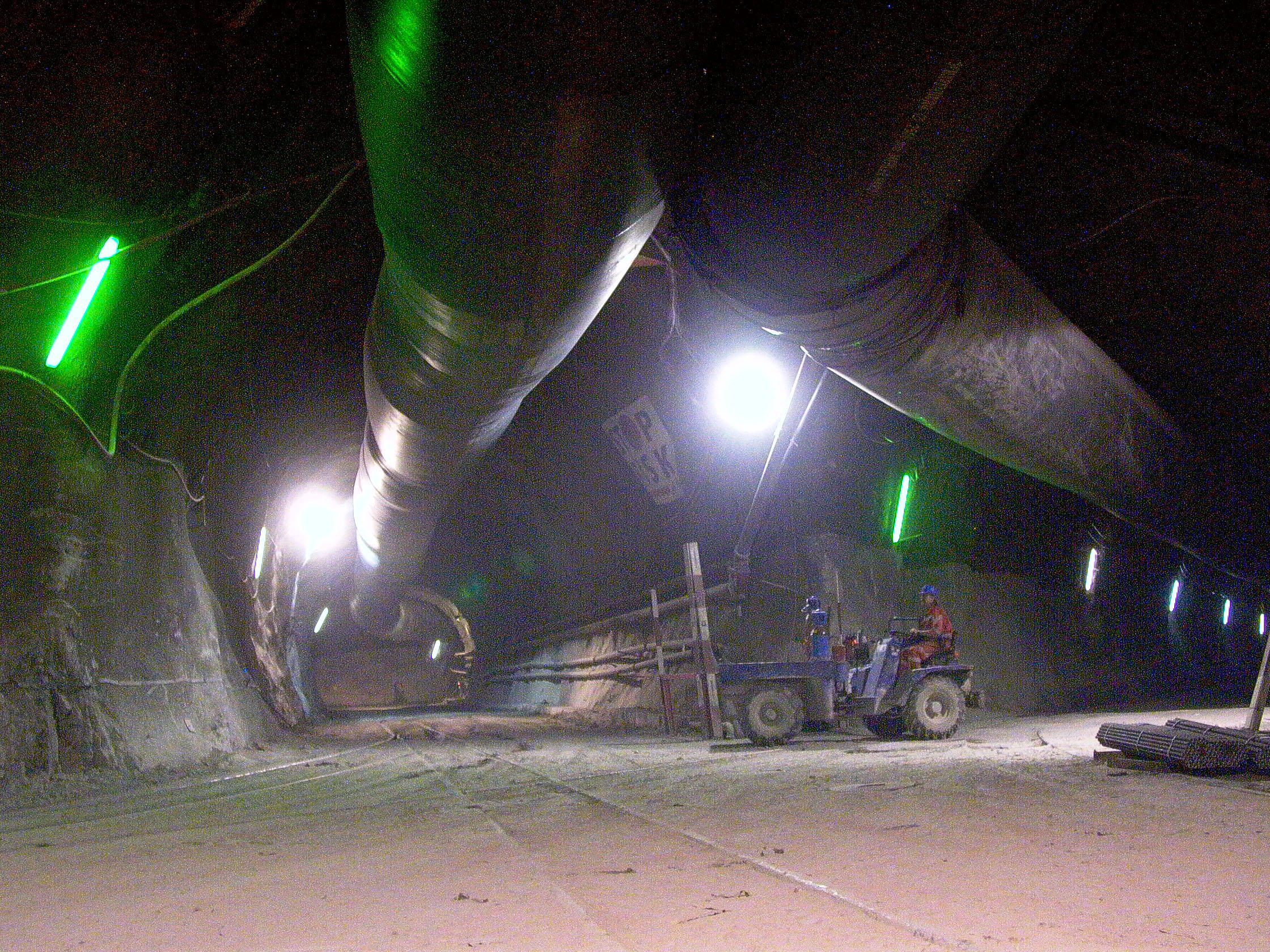
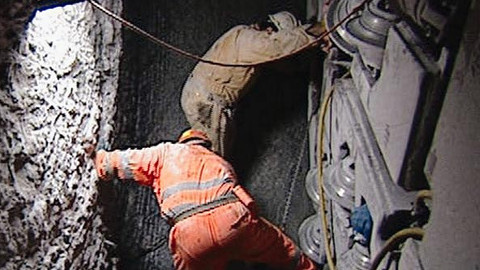
You can find an overview of ongoing debates with our journalists here. Please join us!
If you want to start a conversation about a topic raised in this article or want to report factual errors, email us at english@swissinfo.ch.